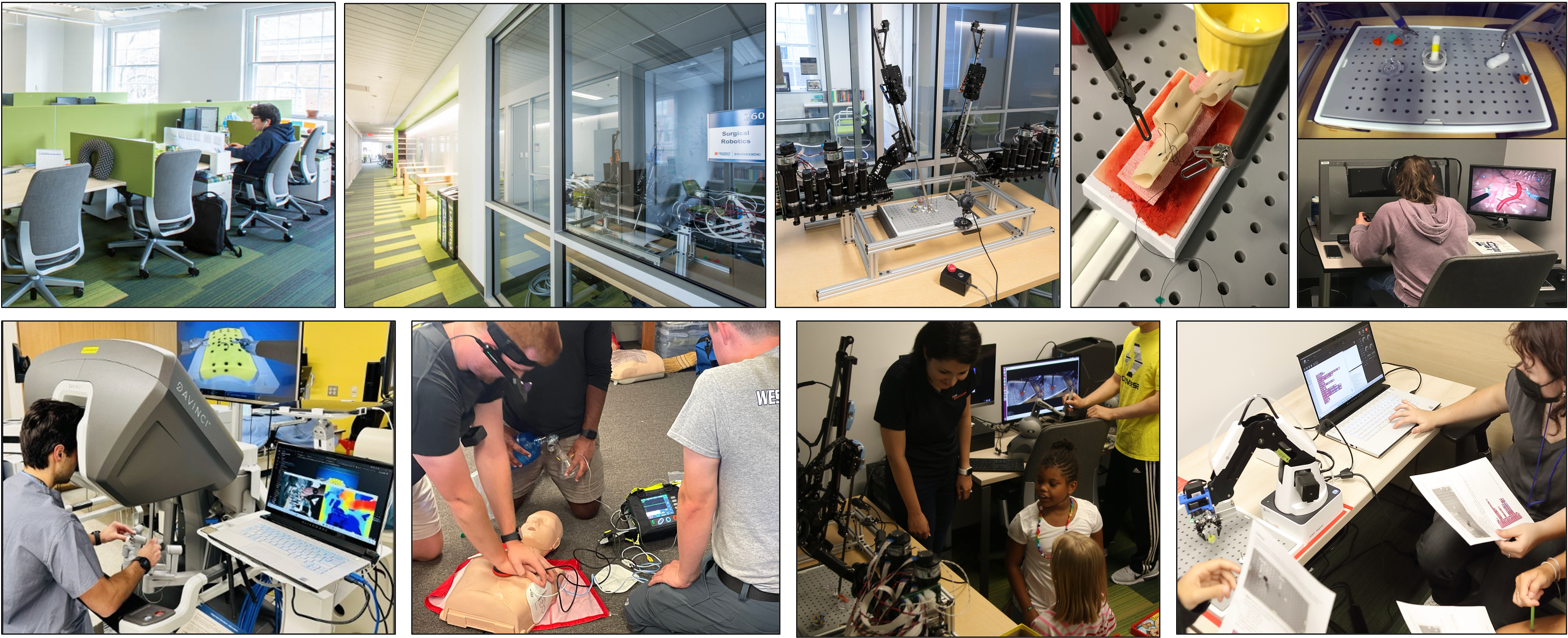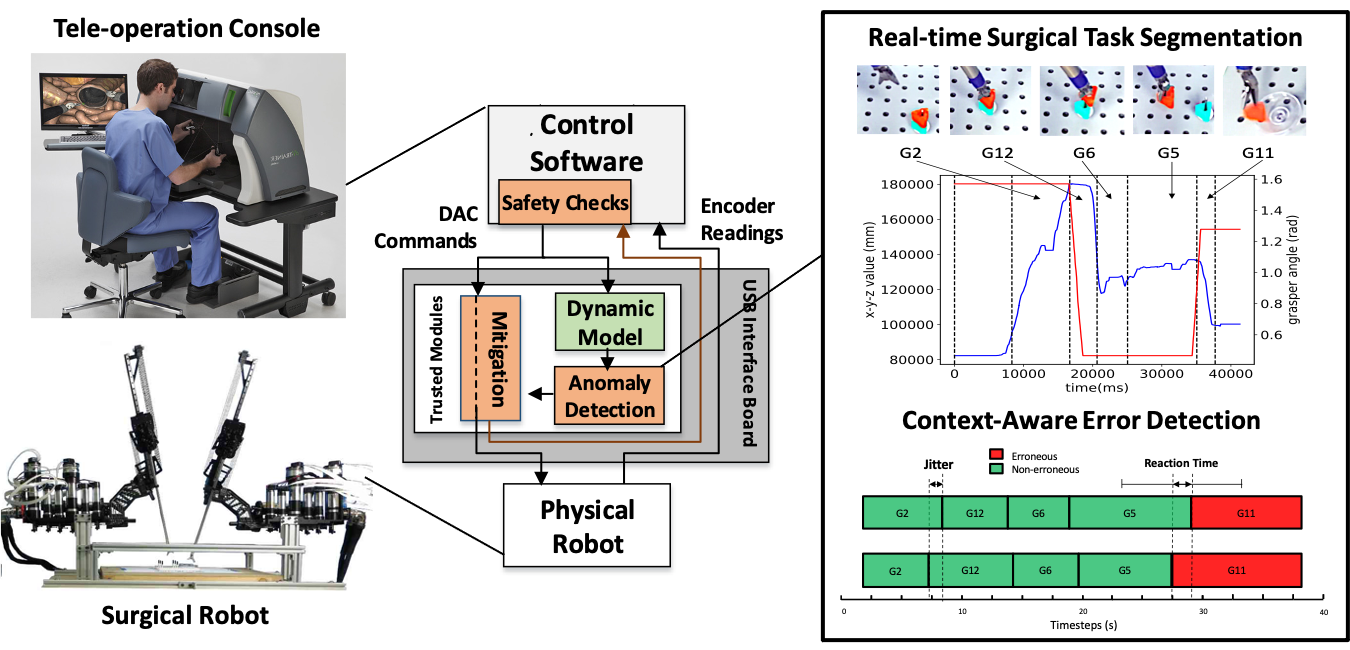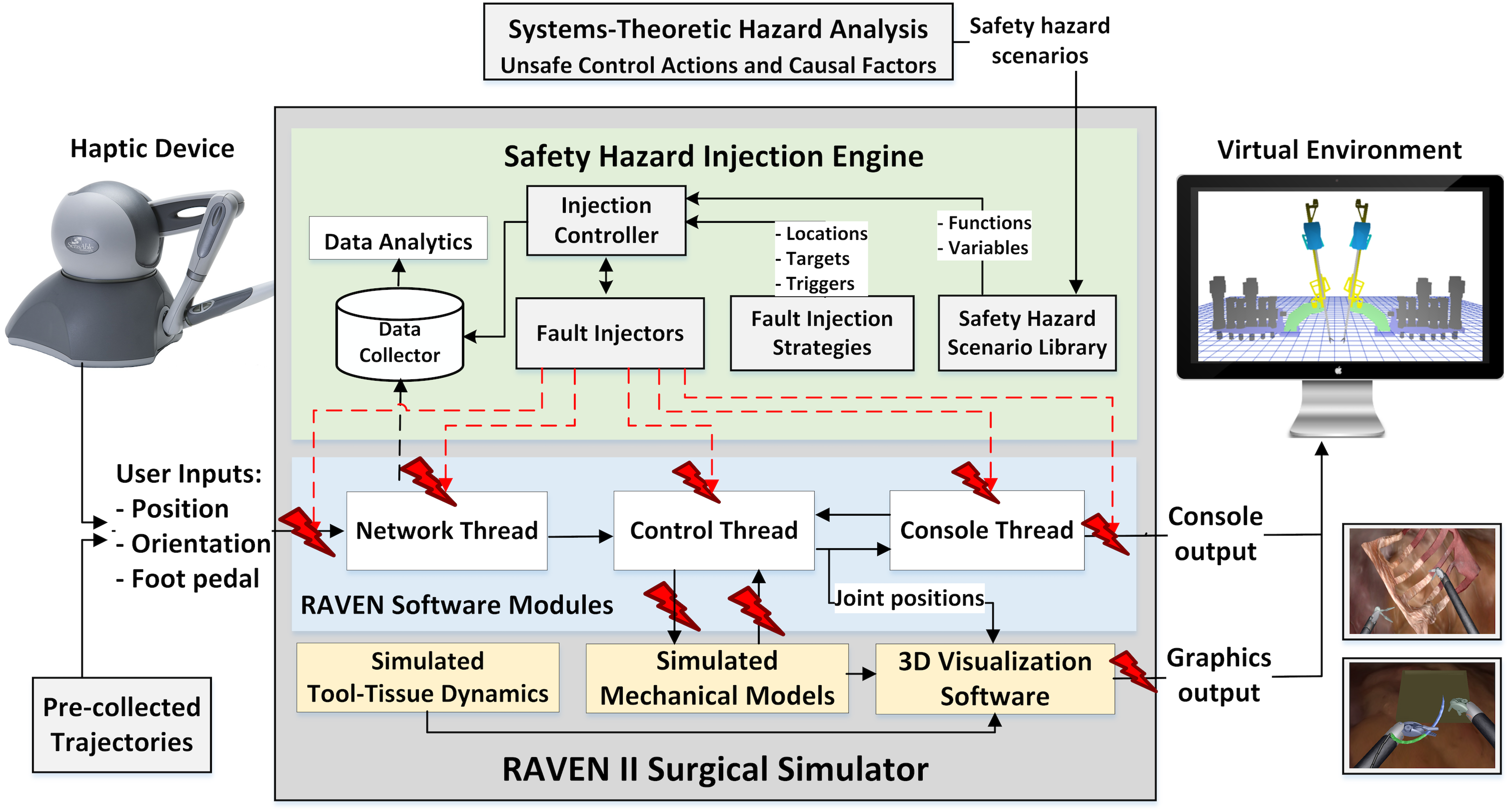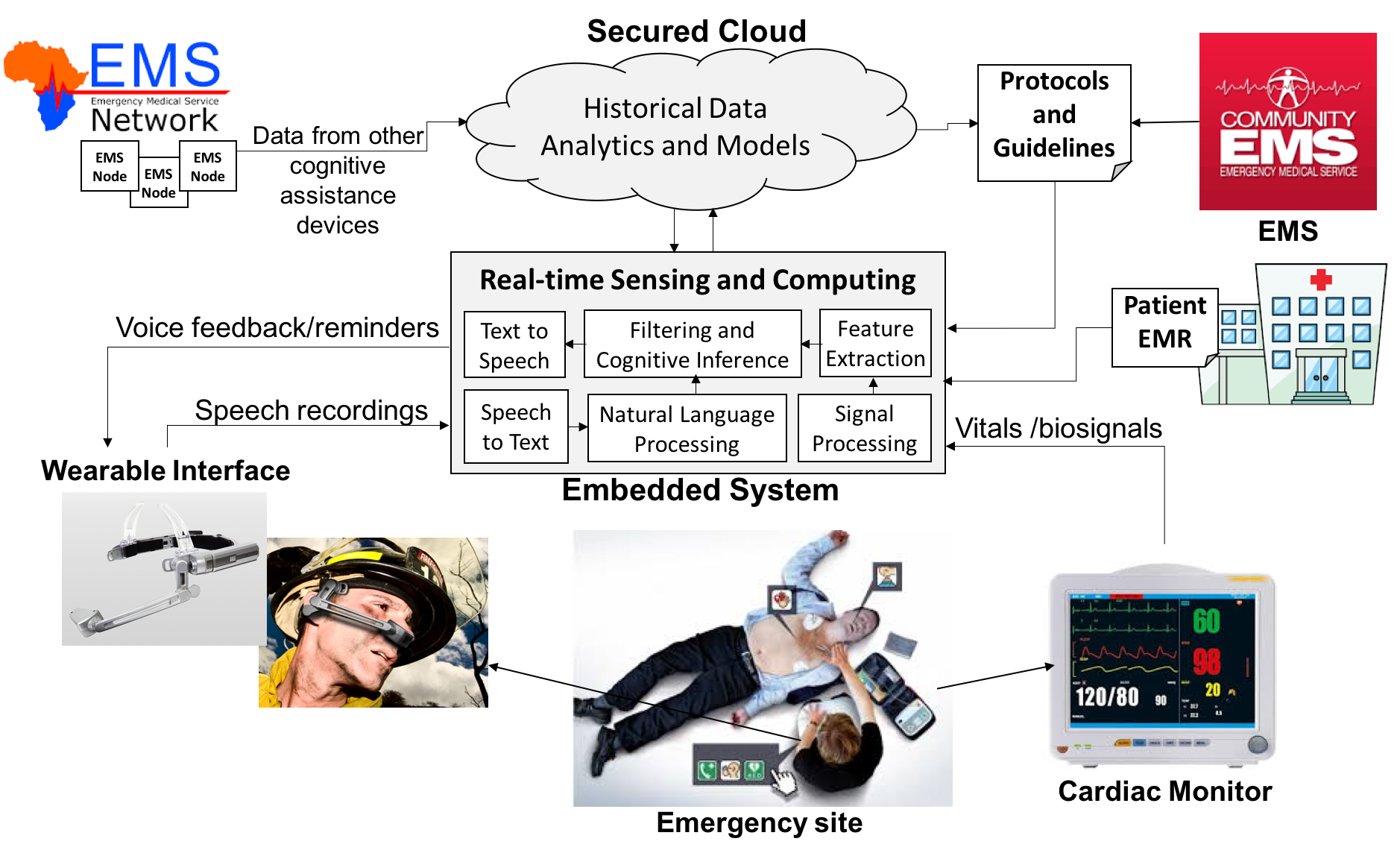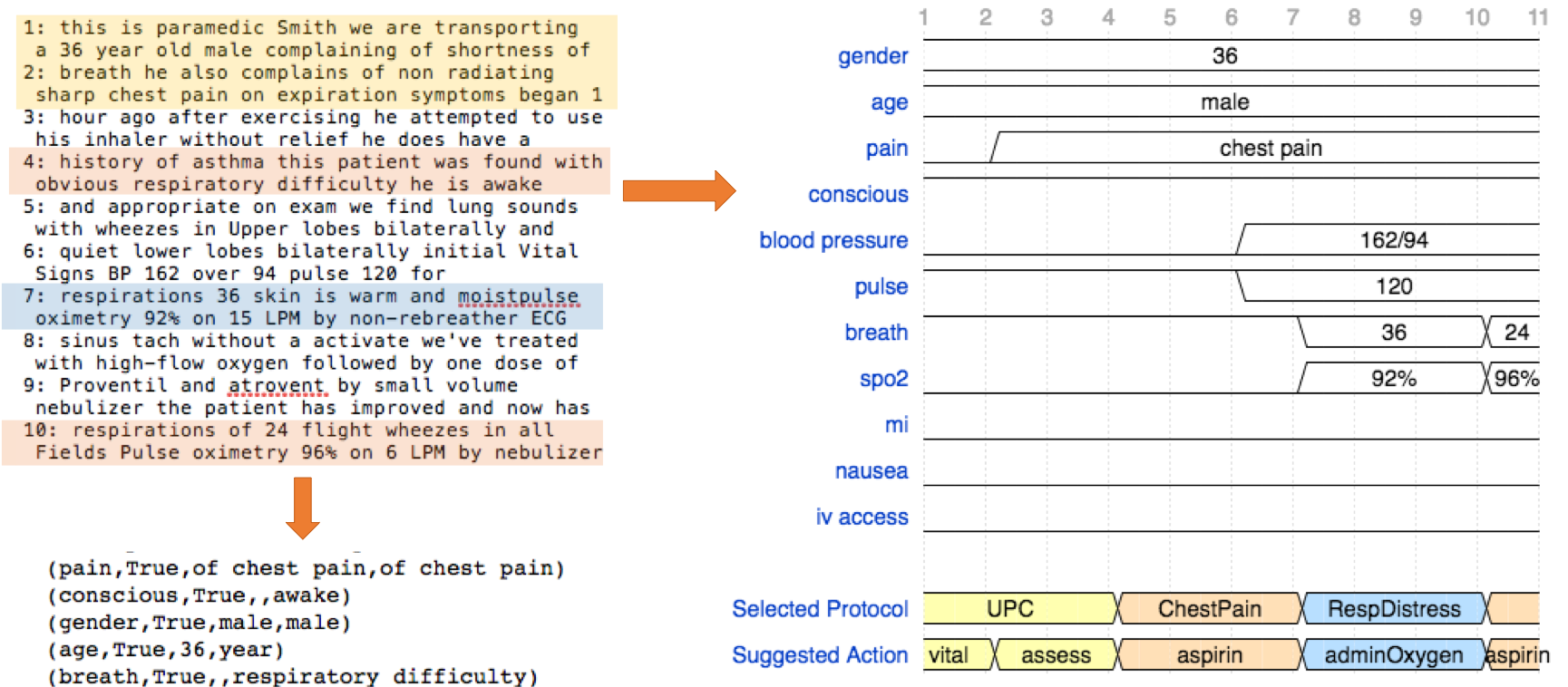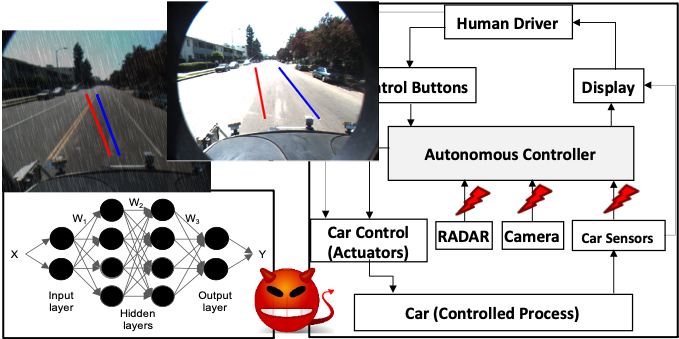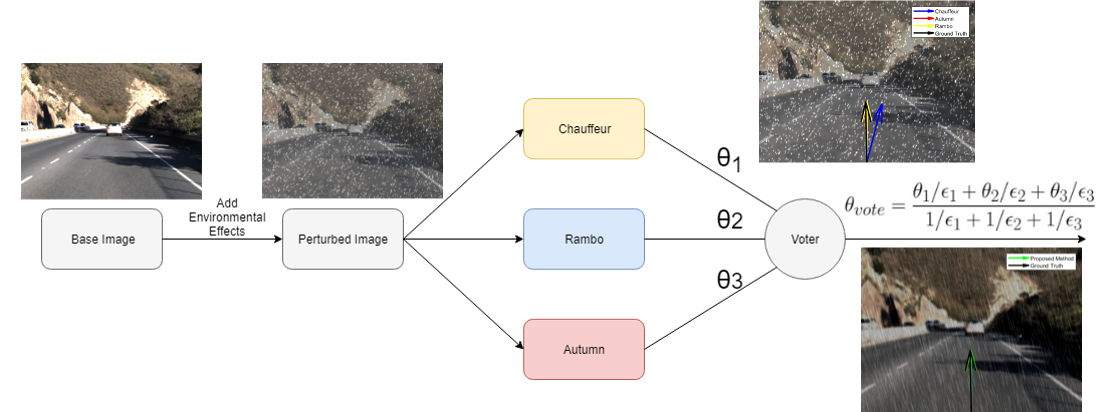● Resilient Cyber-Physical Systems for Robotic Surgery |
The goal of this project is to improve the safety and efficiency of robot-assisted surgical procedures through:
(i) modeling and analysis of safety incidents by considering the interactions among cyber and physical system components and human operators;
(ii) resilience assessment of the robotic surgical systems in the presence of accidental system faults, cyber attacks, and human errors;
(iii) continuous context-aware monitoring for early detection of potential safety and security violations;
(iv) simulation-based safety training to prepare surgical teams on dealing with unexpected events during surgery.
|
| ● Cognitive Assistant Systems for Emergency Response |
This project focuses on the next generation first responder technology that improve situational awareness and safety in emergency response.
The main goal is to develop a wearable cognitive assistant system that combines the following key components:
(i) Resilient data analytic algorithms for collecting heterogeneous data streams from incident scene, aggregating it with knowledge sources and publicly available data, and transforming it into accurate and actionable feedback to first responders
(ii) Anytime real-time sensing and computing resources that are dynamically optimized to enable continuous data processing on responder-worn edge devices, even in presence of unexpected events, such as failures or network disconnection.
|
| ● Resilience-by-Construction Design of Medical Devices |
|
The advances in low-power and highly integrated technology provide enormous opportunities for the deployment of implantable medical devices (IADs) and body area networks (BANs).
However, the significant increase in device complexity, resource constraints, and shrinking time to market has created major challenges in medical device reliability and security and patient safety.
This project investigates development of a generalized model-based fault-tolerance technique that uses the principle of “resilience-by-construction” for design of the next generation medical devices.
|
| ● Dependable and Secure Artificial Intelligence |
|
In this project we investigate design and validation of resilient (reliable, safe, and secure) autonomous systems that rely on artificial intelligence and machine learning for perception, control and decision making.
We are particularly interested in designing safety monitoring and mitigation mechanisms and testing and certification techniques for machine learning systems, with applications to autonomous CPS.
|
